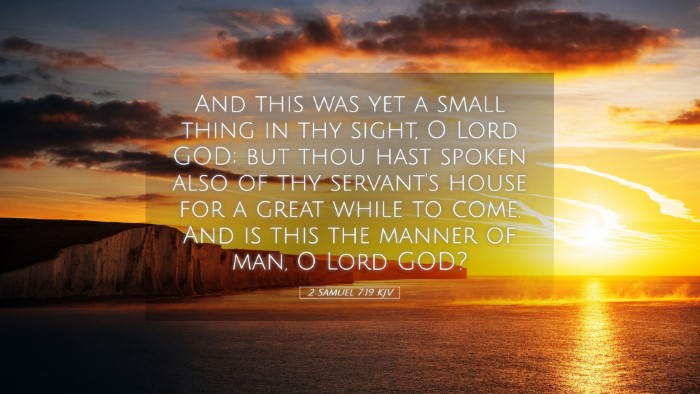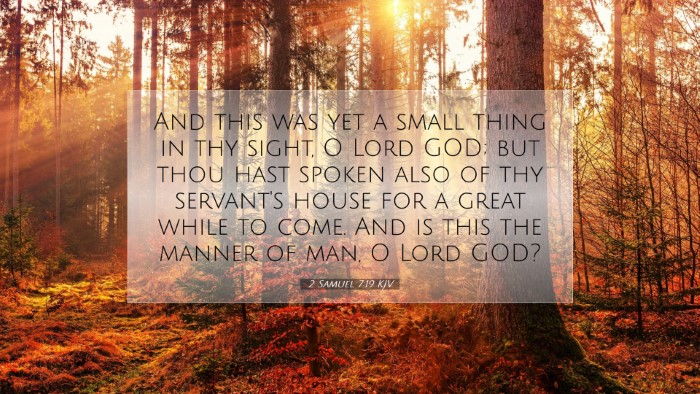Old Testament
Genesis Exodus Leviticus Numbers Deuteronomy Joshua Judges Ruth 1 Samuel 2 Samuel 1 Kings 2 Kings 1 Chronicles 2 Chronicles Ezra Nehemiah Esther Job Psalms Proverbs Ecclesiastes Song of Solomon Isaiah Jeremiah Lamentations Ezekiel Daniel Hosea Joel Amos Obadiah Jonah Micah Nahum Habakkuk Zephaniah Haggai Zechariah MalachiVerse
2 Samuel 7:1 2 Samuel 7:2 2 Samuel 7:3 2 Samuel 7:4 2 Samuel 7:5 2 Samuel 7:6 2 Samuel 7:7 2 Samuel 7:8 2 Samuel 7:9 2 Samuel 7:10 2 Samuel 7:11 2 Samuel 7:12 2 Samuel 7:13 2 Samuel 7:14 2 Samuel 7:15 2 Samuel 7:16 2 Samuel 7:17 2 Samuel 7:18 2 Samuel 7:19 2 Samuel 7:20 2 Samuel 7:21 2 Samuel 7:22 2 Samuel 7:23 2 Samuel 7:24 2 Samuel 7:25 2 Samuel 7:26 2 Samuel 7:27 2 Samuel 7:28 2 Samuel 7:29

